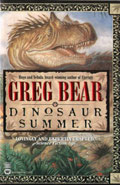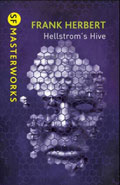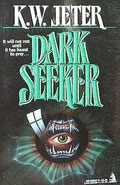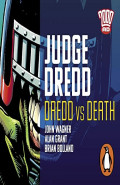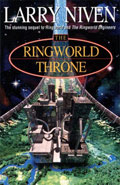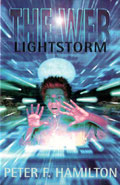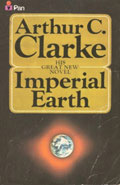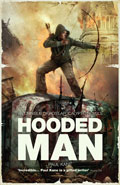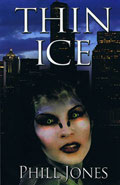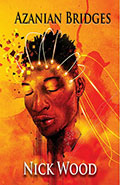Children of Ruin
By Adrian Tchaikovsky
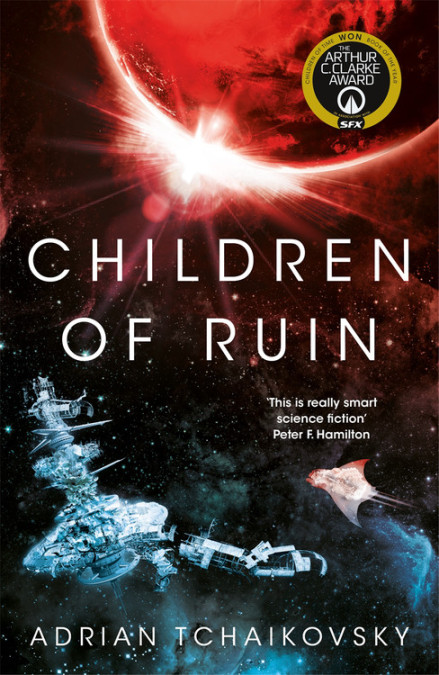
- Children of Ruin
-
Author: Adrian Tchaikovsky
- Series: Book 2 of Children of Time Novels
-
Publisher: Tor Books
- ISBN: 978-1509865833
- Published: May 2019
- Pages: 576
- Format reviewed: Paperback
- Review date: 16/05/2019
- Language: English
The sequel to the 2016 Clarke Award winner, Children of Time, the story of the far future human and spider civilisations picks up several generations after the events at the end of the previous novel.
A terraforming team, led by Dirsa Senkovi and Yusuf Baltiel discover alien life on a far distant planet that they had been sent to make habitable for humans. Baltiel decides to preserve this life and Senkovi agrees to redirect their work to an ice planet on the edge of the viable zone. Senkovi decides to create sentient life using the Rus-Calif virus – the same virus used by scientist Avrana Kern to mistakenly ‘uplift’ the population of another world, featured in the Clarke Award winning Children of Time (2016), turning them into the Portids – an intelligent civilisation of spiders.
Hundreds of years later, a joint human and Portid exploration ship called Voyager arrives in the system and encounters the products of Senkovi’s labour on the terraformed planet Damascus and the mysterious alien life of the planet Nod.
Tchaikovsky’s stories are always meticulously researched and planned. In this case, the arrival of Voyager does herald the entrance of our knowledge perspective into a new mysterious sandbox, reminiscent of Clarke’s work in the Rama series. Where Tchaikovsky differs is in his use of flashback, employing this to tell the tale of Senkovi, Baltiel and their companions. In many ways, this close quarter story of the events that led to the present circumstances that we explore with the crew of Voyager is more immediate in its appeal. The visceral blend of horror and science fiction as experiments go wrong and unforeseen events wreck the expedition’s chance of survival are gripping and a highlight of the book. There is an epic quality in the loneliness of these humans, who believe they are the last of their kind and an immediate strangeness in the Nodian life they encounter.
Tchaikovsky employs the novum of the Rus-Calif virus with care, blending science and pseudoscience in the best tradition of the genre. The advance technologies of the Portids, Avrana Kern and the Octopus civilisation are also, similarly thought through, with each being an extension of their natures.
However, Tchaikovsky does set himself a hard task in ensuring the characters of his work have distinct voices. Aside from the considerations of different characters, we have sentient spiders, sentient Octopuses, Nodian life, an artificial intelligence made up of ants and the humans themselves. It is quite a feat to juggle all of these different elements and make them feel wholly different. Additionally, all of these peoples and some of the individuals who belong to each of these types of life have differing agendas of their own. This forms a crazy tapestry of political play, which at times, seems to be incapable of being resolved.
However, the constraints of the story do force events towards a conclusion. In some respects, this does cut against the established grain of our new factions. The Nodian lifeform and the Octopus civilisation do seem particularly set against any cooperative resolution that might come about. At times, the plot requirements to bend them do seem to run counter to their instincts.
In addition to this, there are large sections of the book which are devoted to exposition – detailing the ways in which the Senkovi/Baltiel period connects with the later Voyager period. Tchaikovsky is certainly a writer who indulges in a heavier treatment of worldbuilding, but at times, the material does wander too far into being referential rather than essential. By the time the reader gets to these parts, they have already been hooked into the story by the devices employed in the opening chapters, but long paragraphs of detail do sap some of the book’s intrigue. More could certainly have been done with less.
The epilogue of the book does hint towards something of a utopian menagerie, reminiscent of Ken Liu or Hanu Rajaniemi. It also implies an end/happy end to Tchaikovsky’s explorations of this particular science fiction. I do hope that is not the case, as there are plenty more stories that could be told in this far future fiction.
Written on 16th May 2019 by Allen Stroud .
